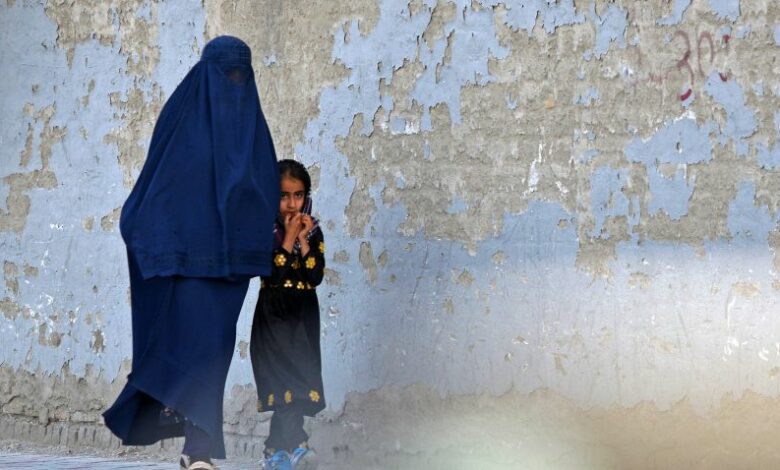
Amnesty International and the International Commission of Jurists (ICJ) said the group’s treatment of women and girls meets the criteria for gender persecution, which is defined as a crime against humanity by the International Criminal Court (ICC).
The group has increasingly excluded women from public life, imposing a swathe of draconian laws since it regained power in Afghanistan in 2021.
Girls and women have been suspended from secondary and university education; barred from various work sectors; refused access to public spaces; seen their right to travel abroad restricted; and been ordered to cover themselves in public.
“Let there be no doubt: this is a war against women,” Agnès Callamard, the Secretary General of Amnesty International, said in a statement Friday unveiling the joint report. “These are international crimes. They are organized, widespread, systematic.”
“The Taliban’s campaign of gender persecution is of such magnitude, gravity and systematic nature, that cumulatively the acts and policies form a system of repression which aims to subjugate and marginalize women and girls across the country,” added Santiago A. Canton, Secretary General of the ICJ, a group of prominent judges and lawyers headquartered in Switzerland.
“Our report indicates that this meets all the five criteria to qualify as a crime against humanity of gender persecution,” Canton said.
The Taliban’s deputy spokesperson, Bilal Karimi, told CNN: “This type of statement is full of hatred and propaganda.”
Karimi claimed the report only gave a partial view of the situation in Afghanistan, adding: “Women are working in different government departments like ministries and airports, however wherever they work should be based on Afghan culture and Islamic values.”
Afghanistan is a party to the Rome Statute, the treaty that created the ICC, and is therefore within the court’s jurisdiction. The court, located in The Hague, in the Netherlands, tries four types of crimes: genocide, crimes against humanity, crimes of aggression and war crimes.
But the ICC does not conduct trials in absentia, so if its investigations result in an arrest warrant, any individuals named must be detained by the country they are in – making it highly unlikely that any Taliban officials would face a trial while the group is in power.
Following their lightning-fast takeover in August 2021, the Taliban were eager to present a new, reformed image as a relatively inclusive and restrained group, in comparison with their previous repressive rule from 1996 to 2001.
But the group quickly returned to its old playbook, targeting political enemies, minority groups and women in a series of hardline reforms.
Amnesty and the ICJ urged the United Nations’ Human Rights Council to work to establish “an independent international accountability mechanism to investigate crimes under international law” at their next session in October.
Last month, the UN said it was forced into making an “appalling choice” by instructing all of its personnel in Afghanistan to stay away from its offices in the country, after the Taliban banned female Afghans from working in international aid.
“Our report provides a holistic and in-depth perspective underlining the scale and seriousness of the violations by the Taliban,” Canton said.
“It calls for a drastic and urgent change in the international community’s approach to the Taliban’s persistent and flagrant criminal conduct preventing the women and girls in Afghanistan from exercising most of their human rights.”




